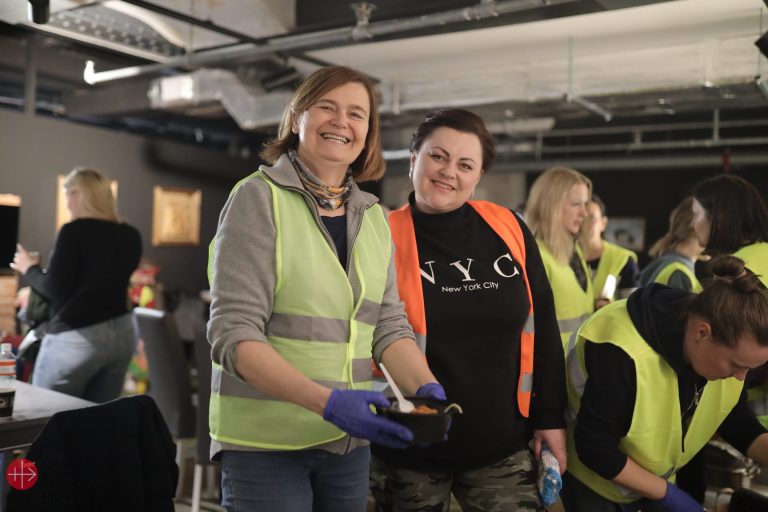POLAND: ACN volunteers working 24/7 for Ukrainian refugees

The volunteers of the Polish office of a leading Catholic charity have been working around the clock to offer support and sustenance to Ukrainian refugees fleeing the conflict.
Aid to the Church in Need (ACN)’s office in Wrocław, Poland, located next to the central train station, has become the first point of contact for thousands of refugees arriving into the city daily.
Father Andrzej Paś, of ACN Poland, said: “It was an act of God’s providence that we should have our office right next to the Wrocław train station.
“When the Ukrainian refugees arrived, terrorised and exhausted in a place unfamiliar to them, we were already there to help.”
He added: “The people getting off the trains are immediately told by the volunteers where they can go to receive help.”
The same day that Russia invaded Ukraine, ACN unveiled an emergency package of €1million in aid (more than £830,000) and recently announced a further €300,000 (more than £250,000) to support the Catholic Churches in Ukraine.
When the emergency aid programme was announced, hundreds of volunteers turned up at ACN’s Polish office – which only opened two years ago – to offer their help.
Father Paś said: “In order to help as a volunteer you need to join the Facebook group “Help for Ukraine – PKP Wrocław”… I give information above all about what is needed.”
He added: “We ask people to bring us new things and not already worn things.”
The amount of aid brought in by benefactors and volunteers, has been so large that a warehouse has had to be opened outside Wrocław.
Julka, one of ACN Poland’s longstanding volunteers, was delighted by how many volunteers have signed up to help.
She said: “There are so many of them, and sometimes they are working 24 hours a day”.
She added: “Restaurant owners come to us bringing soup and sandwiches, and many people are offering their help to cook pots of soup, stew and casseroles”.
Andżela, a Ukrainian woman based in Wrocław for the last two years, has provided psychological support, including night-time telephone consultations with refugees.
She said: “The people arriving here are traumatised. They don’t know what the future holds for them and they are profoundly distressed. I explain to them that they are in good hands”.
Father Paś finished by saying: “The governor of Lower Silesia, the province to which Wrocław belongs, has organised accommodation, as have many individuals, willing to offer hospitality and provide shelter to those in need.”
With special thanks to Sister Karolina Mordaka and Maria Lozano
